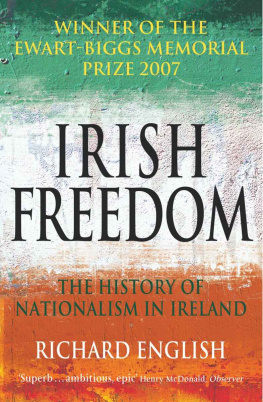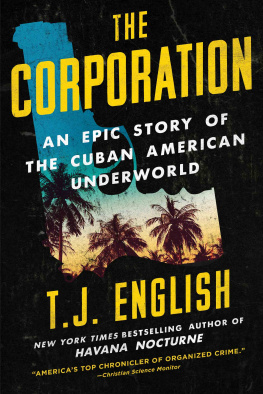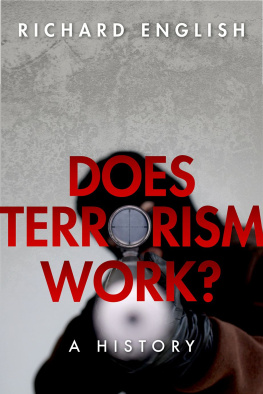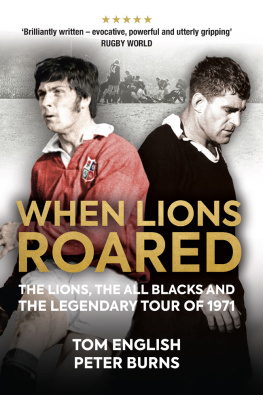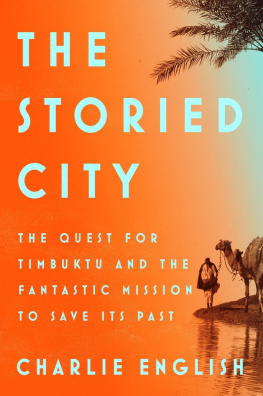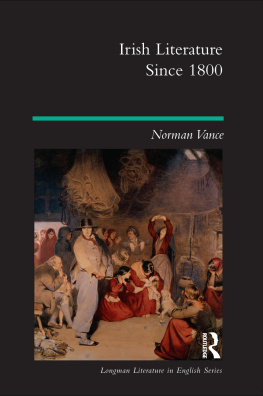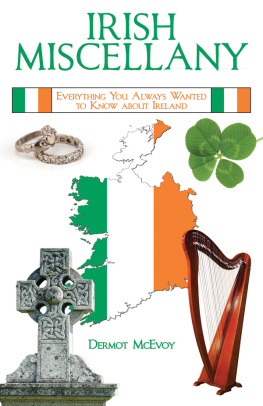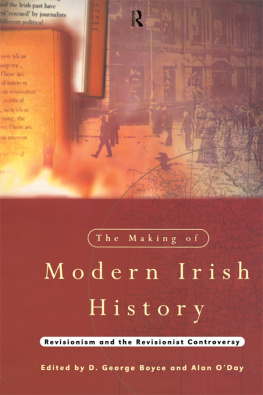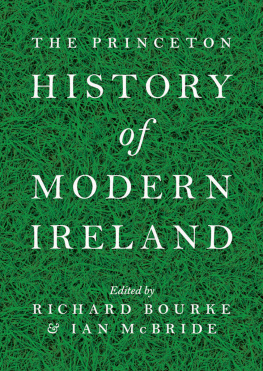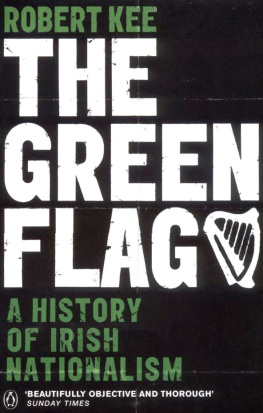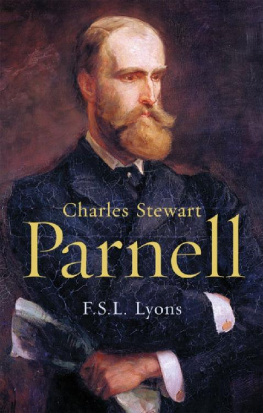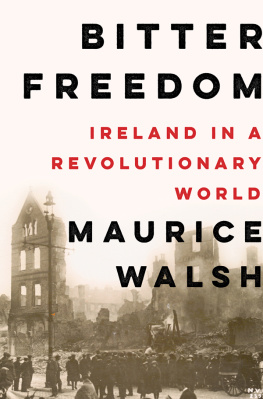IRISH FREEDOM
Richard English was born in 1963 in Belfast, where he is Professor of Politics at Queens University. Armed Struggle: The History of the IRA, also published by Pan Macmillan, won the Politics Book of the Year Award for 2003 from the Political Studies Association and was shortlisted for the Ewart-Biggs Memorial Prize. He is a frequent media commentator on Irish politics, and has written on Ireland for the Irish Times, the Times Literary Supplement, Newsweek, the Financial Times and the Times Higher Education Supplement.
Richard English has followed up his award-winning Armed Struggle: The History of the IRA with another survey of a vast topic: the past origins, past and present progress and future potential of that elusive and yet everyday phenomenon: national identity in Ireland This is a very ambitious endeavour, and English brings it off with great panache courageous and successful
Tom Garvin, Irish Times
A brilliant survey of ideas about nationalism, asking where the phenomenon comes from, why it endures and triumphs over other identifications and what the general history and theory of nationalism can illuminate about the Irish case, and vice-versa. It should be widely read
Roy Foster, Irish Times Books of the Year 2006
Mature, insightful and even-handed an ambitious and brave undertaking. But he rises to the challenge admirably, partly because of the lively spirit of inquiry that punctuates his prose, his crisp assessments of some of the icons of Irish nationalism, and his engaging style English brings a sharp interrogation to many of the labels and assumptions associated with Irish nationalism
Diarmaid Ferriter, Sunday Business Post
This book is a tour de force through the history of Irish nationalism from the twelfth century to the Good Friday Agreement. Richard English, Professor of Politics at Queens University Belfast, pulls off the ambitious project with aplomb
Irish Examiner
Among the books I read in 2006, few matched the majestic sweep of Richard Englishs treatment of the cause of Irish nationalism. Irish Freedom: The History of Nationalism in Ireland is the work of an academic at the top of his game
Kevin Rafter, Sunday Tribune Books of the Year 2006
[A] magisterial new history of Irish nationalism
Steven King, Irish Examiner
Nationalism has dominated the Irish political scene for the last two centuries and this excellent book goes a long way to explaining its significance and importance. Englishs book is perfect for anyone looking for a greater understanding of the ideology that has shaped Ireland as we know it today
Derry Journal
An important book by a writer rightly regarded as one of our most nuanced and careful political thinkers
William Crawley, BBC
The authors erudition is remarkable, and his ability to thoroughly carry out such an ambitious task is impressive
Liam ORuairc, The Sovereign Nation
places Irish nationalism in the context of the development of nationalist ideas elsewhere timely and interesting
John Bruton, Irish Independent
valuable as an analysis of the practical and philosophical underpinnings of both constitutional and aggressive nationalism its most important contribution is to stress the pragmatism that has marked nationalisms greatest successes
Sunday Times
a brave and coherently argued assault on the historical sacred cows of Irish nationalism, as well as a sympathetic appraisal of the movements roots
Metro Scotland
The most important quote in this ambitious, epic work on Irish nationalism is in parenthesis, but it should have been the books epigraph. It comes from The Poverty of Historicism, Karl Poppers critique of the Marxian notion that history runs inexorably and predictably towards a promised land: The belief in historical destiny is sheer superstition.
For the philosophers assault on Marxism, read Richard Englishs lucidly written dissection of nationalism in Ireland over the last three centuries this superb survey of Irish nationalism [is] a fine work of scholarship
Henry McDonald, Observer
IRISH FREEDOM
The History of Nationalism in Ireland
PAN BOOKS

First published 2006 by Macmillan
First published in paperback 2007 by Pan Books
This electronic edition published 2008 by Pan Books
an imprint of Pan Macmillan Ltd
Pan Macmillan, 20 New Wharf Rd, London N1 9RR
Basingstoke and Oxford
Associated companies throughout the world
www.panmacmillan.com
ISBN 978-0-330-47583-9 PDF
ISBN 978-0-330-47582-2 EPUB
Copyright Richard English 2006
The right of Richard English to be identified as the author of this work has been asserted by him in accordance with the Copyright, Designs and Patents Act 1988.
You may not copy, store, distribute, transmit, reproduce or otherwise make available this publication (or any part of it) in any form, or by any means (electronic, digital, optical, mechanical, photocopying, recording or otherwise), without the prior written permission of the publisher. Any person who does any unauthorized act in relation to this publication may be liable to criminal prosecution and civil claims for damages.
A CIP catalogue record for this book is available from the British Library.
Visit www.panmacmillan.com to read more about all our books and to buy them. You will also find features, author interviews and news of any author events, and you can sign up for e-newsletters so that youre always first to hear about our new releases.
FOR
C.M.C., J.H.E. and A.F.E.
Contents
PART ONE
IRELAND BEFORE 1800
PART TWO
THE NINETEENTH-CENTURY DRAMA
PART THREE
THE LONG TWENTIETH CENTURY
PART FOUR
CONCLUSION
Acknowledgements
As ever, research and writing have left me with debts of gratitude to many people. I first developed an interest in Irish nationalism when I was a student at Oxford: the subtle guidance of my then tutor David Eastwood had a profound and lasting effect, as have our many conversations about history and politics over subsequent years. My PhD supervisor at Keele University, Charles Townshend, likewise taught me much about the writing of history, and he has remained a source of very sharp insight into the past. All students of Irish nationalism owe a great deal to George Boyce, whose pioneering work on the subject has illuminated all our reading; I myself have also learned much from my many discussions with him over the years, concerning Irish nationalism. Roy Fosters scholarship, friendship and wise advice have all had a decisive influence upon my thinking, and have been truly invaluable.
In Belfast, I have benefited greatly from conversations with many friends and colleagues. Historians such as Graham Walker, Alvin Jackson, Peter Hart, Paul Bew, Margaret OCallaghan, Keith Jeffery, Henry Patterson, David Fitzpatrick, Sean Connolly, Liam Kennedy, David Hayton, Joost Augusteijn, Ben Levitas, Brian Walker, Fearghal McGarry, Jane Leonard, Patrick Maume, Marie Coleman and Peter Gray though resident in the city for varying periods and with various kinds of institutional affiliation have none the less collectively represented an informal Belfast School of Irish History; their combined influence on our understanding of Irish nationalism has been very impressive, and my personal debt to them has been considerable. Belfast-based scholars with other areas of specialism have also shaped my thinking in important ways: its a pleasure to thank Harvey Whitehouse, Mark Burnett, Hastings Donnan, David Livingstone, Colm Campbell, Christopher Marsh, Vincent Geoghegan and Shane ONeill for the ways in which their arguments have informed my thinking. Im also grateful for the help and advice which have been given by many other people, including Marianne Elliott, Joseph Morrison Skelly, Cormac OMalley, David Adamson, Tim Smyth, Cormac Kinsella and Cameron Watson. Maxine Cresswell, Roy Foster, Ian McBride and Charles Townshend generously took the time to read draft chapters of the book; each offered extremely valuable advice, and Im deeply grateful to them all.

